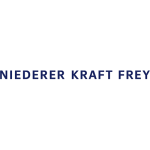SECTION 1: General outlook
1.1 Please summarise the broad trends and patterns in Chinese investment into your jurisdictions, citing any recent specific examples.
The growing appetite of consumers in China has propelled Chinese companies to the top ranks of the global league tables for mergers and acquisitions.
Chinese companies are acquiring and investing in a wide range of assets worldwide, and Swiss companies and assets are a popular target for Chinese buyers. For example, in 2017 ChemChina completed its $43 billion takeover of SIX Swiss Exchange-listed Syngenta, the biggest foreign takeover by a Chinese company. Other prominent transactions with values above $1 billion were the takeovers of Gategroup and Swissport by HNA and the acquisition of Infront Sports & Media by Dalian Wanda Group.
There are mainly four different types of active Chinese buyers in M&A transactions. The first type is the state-owned enterprise (SOE), such as PetroChina and Bank of China. The second type is the privately owned enterprise (POE), which is becoming increasingly active in cross-border M&A deals involving Switzerland. They are most commonly driven by gaining access to new technologies and increasing market share. Examples of POEs are Lenovo, Hainan Airlines and Huawei. The third type is the small but growing China-based private equity firm. Finally, the sovereign state-owned wealth funds (e.g., China Investment Corporation) also use M&A transactions to diversify China's foreign currency reserves. They tend to focus on smaller but high value stakes in large companies.
1.2 How would you summarise your jurisdiction's attitude towards Chinese investment?
Generally, Switzerland's attitude towards Chinese investments is open and favourable. Accordingly, the following factors motivate Chinese companies to undertake M&A transactions with Swiss companies:
Switzerland offers economic and political stability and security;
the Swiss legal and regulatory framework is favourable for M&A transactions with Chinese buyers (as described further below there is a double taxation agreement between China and Switzerland and, so far, the free trade agreement between China and Switzerland is one of only few such agreements that China has concluded with a continental European country);
Switzerland is rich in human capital and offers reliable and well-educated employees;
M&A transactions with Swiss companies allow for an efficient inroad to advanced technical know-how;
the acquisition of companies in Switzerland offers Chinese groups relatively quick and easy access to the Swiss market;
it is a good way to acquire recognised brands (e.g. in the areas of technology or luxury goods), which may provide legitimacy in the Swiss, European and even global markets;
Chinese buyers have the potential to increase the value of the acquired Swiss companies (e.g. due to their valuable access to the Chinese and other markets).
In transactions involving Swiss companies that are listed on a stock exchange or which are regulated (e.g. financial institutions), the proper disclosure of the Chinese buyer's ownership structure and regulatory status is becoming increasingly important, as evidenced by recent public cases involving, for example, HNA.
1.3 What is your outlook for Chinese investment into your jurisdiction over the next 12 months?
Due to the favourable legal framework and Switzerland's continued openness towards Chinese investors, we believe that there is a positive outlook for Chinese investments into Switzerland.
SECTION 2: Investment approval
2.1 Explain the process and timings for foreign investment approval.
There are no Swiss laws of general application prohibiting foreign investments in Switzerland or subjecting them to prior approval. Therefore, foreign investors generally do not need formal approval for their investments in Switzerland and no special governmental authority monitors foreign investments. Foreign investments in certain regulated industries might require governmental permission. The competent authorities, the approval process and timing depend on the industry.
2.2 Briefly explain the investment restrictions for any specially regulated/restricted sectors, including whether the government is entitled to any special rights in those sectors.
Investment restrictions exist in particular in the sectors below; as a rule, the government is not entitled to golden shares but may make the approval or licence subject to certain conditions:
Financial market laws: If foreign nationals have a controlling influence over a bank, a securities trader or certain other prudentially-supervised entities active in the financial sector (finance company), the granting of a licence by the Swiss Financial Market Supervisory Authority (Finma) is subject to additional requirements. Among others, the corporate name of the legal entity may not suggest that the entity is controlled by Swiss persons and the countries were the ultimate owner of the controlling interest is domiciled must grant reciprocity (which is the case if the relevant state is a member of the World Trade Organisation). Finma may impose additional conditions to the licence.
Lex Koller / acquisition of real estate: Acquisition of residential (but not commercial) real estate in Switzerland by foreign or foreign-controlled persons is subject to strict limitations under the Lex Koller. Such properties can only be acquired if an authorisation is granted by the competent cantonal and federal authorities. Authorisation is not easily obtained and may take several weeks, if not months, to obtain.
The relevant licensing authorities may refuse to grant a licence to companies incorporated under foreign laws under the telecommunications act for radio communication licenses, the nuclear act for nuclear power plants, the radio/TV act for broadcasting licences and the aviation act for the professional transport of passengers or goods, unless reciprocal rights are granted to Swiss persons by the respective foreign states. In case of aviation companies, it is required that a company headquartered in Switzerland be under the actual control of Swiss citizens.
2.3 Which authority oversees competition clearance?
Competition clearance in general is overseen by the Swiss Federal Competition Commission (Comco). In the event of a merger or takeover of a Swiss bank which is considered necessary for reasons of creditor protection, Finma will replace Comco as the competent authority.
2.4 Briefly explain the merger clearance process.
In case of a merger or acquisition of a controlling stake in an enterprise, Comco needs to be notified prior to implementation (closing) if, in the last accounting period prior to the transaction (a) the enterprises concerned reported a joint turnover of at least CHF2 billion ($2.12 billion) or a turnover in Switzerland of at least CHF500 million; and (b) at least two of the enterprises concerned reported an individual turnover in Switzerland of at least CHF100 million each. Special thresholds apply in the case of banks and insurance companies. The filing needs to be done after the signing of the relevant agreement but prior to closing. On receiving notice of such a transaction, Comco must inform the enterprises within one month of whether it is opening a formal investigation. If Comco does not inform the enterprises within the one-month period, the transaction may proceed without reservation. If an investigation is opened, the parties may not close the transaction. Comco should complete the investigation within four months.
2.5 Are there approval requirements when a foreign investor increases or exits its investments?
As a rule, and unless a licence granted stipulates otherwise in its terms, an increase of an investment will not trigger additional approval requirements, unless the foreign investor newly acquires a controlling interest through the increase. In the case of banks, securities traders and certain other prudentially-supervised financial institutions, any increase of a participation exceeding a threshold of 10%, 20%, 33% or 50% of the capital or voting rights must be notified to Finma. The same applies if a foreign investor decreases / exits its investments in such companies. As a rule, there are no exit obstacles and repatriation of profits and capital is possible.
SECTION 3: Investment techniques
3.1 What are the most common legal entities and vehicles used for Chinese investment into your jurisdiction?
The most commonly used legal entities are the stock company (AG) and the limited liability company (GmbH). Both have capital divided into shares and limited liability. They are suitable for both operational and holding purposes. Listed companies are usually constituted as stock companies (AGs). In addition, certain special forms of investment companies (the Sicaf and the Sicav) are subject to the Collective Investment Schemes Act (Cisa). Sicaf is an investment company with fixed capital (close-ended) with the sole purpose of collective investment. Sicav is an investment company with variable capital (open-ended) whose capital is divided into entrepreneurial and investor shares. Sicafs and Sicavs are regulated by Cisa and supervised by Finma. As a non-corporate vehicle under the scope of Cisa, limited partnerships (LPs) are often used for collective investment.
3.2 What are the key requirements for the establishment and operation of these vehicles which are relevant to Chinese investment?
The entities must be domiciled in Switzerland, must have the required minimum capital (CHF100,000 for the AG, CHF20,000 for the GmbH) and must be represented by at least one individual domiciled in Switzerland. In addition, publicly traded companies and companies that exceed certain thresholds with respect to total assets, turnover or number of employees must have an auditor. If changes occur, such as amendments to the Articles of Association, changes in the company's capital or changes of the authorised representatives, these must be updated with the competent commercial registry on an ongoing basis. For the entities governed by Cisa, various financial market regulations must be observed.
SECTION 4: Dispute resolution
4.1 Does your jurisdiction have a bilateral investment protection treaty with China or other jurisdictions commonly used for investing into the country?
Switzerland has signed over 120 bilateral investment protection treaties (BITs). According to United Nations Conference on Trade and Development (UNCTAD), Switzerland therefore has the third largest network of such treaties after Germany and China.
The current BIT between Switzerland and China, replacing the BIT of 1986, was signed in 2009 and has been in force since April 13 2010.
4.2 How efficient are local courts' enforcement and dispute resolution proceedings, and are there any procedural idiosyncrasies foreign investors must be aware of?
The court system in Switzerland is relatively efficient. In the World Bank's rating for contract enforcement, Switzerland is ranked 45th out 190 countries. According to such rating, the average time needed for resolving a commercial dispute through a local first-instance court is 510 days. Appeal proceedings before the Swiss Federal Supreme Court are in average completed within 140 days.
Foreign claimants should note that they may be required to provide security for costs upon request of the counterparty in state court proceedings.
Apart from having an efficient court system, Switzerland also remains one of the foremost jurisdictions for arbitration. This position is the result of its liberal legal framework as well as its extensive and arbitration-benevolent case law and doctrine. In this regard, foreign investors should be aware that Swiss BITs systematically contain diagonal arbitration clauses, allowing investors to initiate arbitration directly against Switzerland. Most of these clauses provide for ad-hoc or International Centre for Settlement of Investment (ICSID) arbitration; some of them provide for International Chamber of Commerce (ICC) arbitration.
4.3 Do local courts respect foreign judgments and are international arbitration awards enforceable?
Swiss courts will generally respect foreign judgments by a competent court unless the foreign court violated due process requirements or rendered a decision that is contrary to Swiss public policy. The enforcement of judgments rendered in countries of the European Union, Norway and Iceland is governed by the Lugano Convention, which provides for facilitation both in terms of conditions for enforcement and applicable procedure.
Foreign international arbitral awards are recognised and enforced in Switzerland on the basis of the New York Convention, regardless of reciprocity. Foreign ICSID investment arbitration awards will be recognised and enforced pursuant to Article 54 of the ICSID Convention, which stipulates that ICSID awards shall be enforced like final judgments of domestic courts.
4.4 Are local judgments and arbitration awards from your jurisdiction generally enforceable in other jurisdictions?
Enforcement of Swiss court judgments can be expected in those jurisdictions with which Switzerland has an agreement for the reciprocal enforcement of judgments. Since Switzerland is signatory state of the Lugano Convention, Swiss court judgments are generally enforceable in all European Union countries as well as in Norway and Iceland in a facilitated procedure. Whether a Swiss judgment is also enforceable in a particular foreign jurisdiction in the absence of a bilateral or multilateral agreement will depend on the local laws of that jurisdiction.
Arbitral awards rendered in Switzerland can generally be expected to be enforced in those jurisdictions that are signatories to the New York Convention. ICSID investment arbitration awards rendered in Switzerland will generally also be enforceable in all states signatory to the ICSID Convention.
SECTION 5: Forex controls and local operations
5.1 What foreign currency or exchange restrictions should foreign investors be aware of?
As a principle, unrestricted amounts of liquid funds, i.e. cash, foreign currency and securities (bonds and cheques etc.) can be imported into Switzerland, brought through Switzerland in transit or exported from Switzerland.
In the context of combating money laundering, certain declaration obligations (purpose, beneficial owner etc.) may arise, for example, when transferring higher sums of money in foreign currencies or in the case of cross-border cash movement, if more than CHF10,000 are carried.
To date, Switzerland has taken a very liberal approach to crypto-currencies. For example, in 2017 stock companies were incorporated using crypto-currencies for payment of the company's capital.
SECTION 6: Tax
6.1 Are there tax structures and/or favourable intermediary tax jurisdictions that are particularly useful for foreign direct investment (FDI) into the country?
There is a double taxation agreement (DTA-PRC) in place between Switzerland and China that provides for rather beneficial residual tax rates for withholding taxes on dividends and interest payments (while there are no withholding taxes at all for royalty payments in Switzerland). In the case of a participation of 25% or more in a Swiss company, the Swiss dividend withholding tax is reduced from 35% to 5%. For interest payments, the residual withholding tax is 10%. Due to this beneficial DTA, the use of intermediary tax jurisdictions is not necessary.
6.2 What are the applicable rates of corporate tax and withholding tax on dividends?
The Swiss tax system is based on three levels where taxes are levied: the federal, cantonal and municipal level. The federal corporate income tax provides for a proportional tax rate of 7.83% of the profit after taxes. The tax rates in the 26 cantons of Switzerland vary from 12.32% in the Canton of Lucerne (City of Lucerne) to 24.16% in the Canton of Geneva (City of Geneva). Zurich, with a tax rate of 21.15% (City of Zurich), is rather expensive, while Zug, with a tax rate of 14.6% (City of Zug), is very attractive taking into account that the travel distance to Zurich is only about 20 minutes. In addition, there is an annual capital duty at cantonal level of between 0.001% and 0.525% on the net equity. The withholding tax on dividends is 35% for all companies with a residual tax rate of 5% or 10% based on the DTA-PRC (see above 6.1). The repayment of share capital as well as of certain legal reserves from capital contributions is exempt from dividend withholding tax.
6.3 Does the government have any FDI tax incentive schemes in place?
Since July 2016, Switzerland has applied revised regulations regarding the Swiss federal tax holiday scheme. The revised legislation provides for relief from federal corporate income tax for a maximum period of 10 years for industrial enterprises and production-related service providers. The federal tax incentives are linked to the number of newly created or maintained jobs by an enterprise domiciled in selected regional areas in Switzerland. It can lead to an annual tax credit of up to CHF95,000 for each newly created job and CHF47,500 for each maintained job. Depending on the number of newly created or maintained jobs, the effective tax rate may be substantially decreased to a low single-digit tax rate. There are also tax holiday schemes available at the cantonal level.
6.4 Are there any reciprocal tax arrangements between your jurisdiction and China? If so, how can they aid investors?
Switzerland and China have entered into a double tax agreement (DTA-PRC) that follows the OECD-Model Tax Convention (see 6.1).
About the author |
||

|
|
Manuel Werder Partner, Niederer Kraft Frey Zurich, Switzerland T: +41 58 800 8000 W: www.nkf.ch Manuel Werder's practice focuses on corporate law and domestic and cross-border M&A transactions (including corporate restructurings and private equity and venture capital transactions). His expertise also includes commercial, contract, securities and stock exchange law issues. He has considerable experience in dealing with Chinese parties, in particular in cross-border M&A transactions. |
About the author |
||

|
|
Philippe Weber Partner, Niederer Kraft Frey Zurich, Switzerland T: +41 58 800 8383 W: www.nkf.ch Philippe Weber specialises in large cross-border M&A and financing transactions in various industries, including technology, luxury, industrial goods, travel & retail, life sciences and financial services. He regularly advises Asian companies and investors (including foreign sovereign wealth funds/state owned enterprises, private equity, etc.) in important investments and other business transactions. |
About the author |
||

|
|
Thomas Frick Partner, Niederer Kraft Frey Zurich, Switzerland T: +41 58 800 8349 W: www.nkf.ch Thomas Frick counsels Swiss and foreign banks and other financial institutions in various legal and regulatory issues, with a focus on customer contracts, interbank contracts and syndicated finance. He advises on numerous fintech projects and is the editor of the FinTech Law Review. He advises and publishes on competition law. |
About the author |
||

|
|
Daniel Eisele Partner, Niederer Kraft Frey Zurich, Switzerland T: +41 58 800 8366 W: www.nkf.ch Daniel Eisele specialises in large and complex litigation and arbitration proceedings, commercial contracts and international business transactions in all kind of industries. He has more than 20 years of professional experience and has represented clients in more than 200 arbitration, civil or administrative proceedings. |
About the author |
||

|
|
Markus Kronauer Partner, Niederer Kraft Frey Zurich, Switzerland T: +41 58 800 8000 W: www.nkf.ch Markus Kronauer specialises in tax advice for corporations, tax aspects of bank financing transactions, asset backed securities transactions, equity capital market transactions and of capital market products. He advises on transfer of domicile, lump sum taxation, real estate transactions, inheritance tax and income and wealth taxes for international individuals. |





